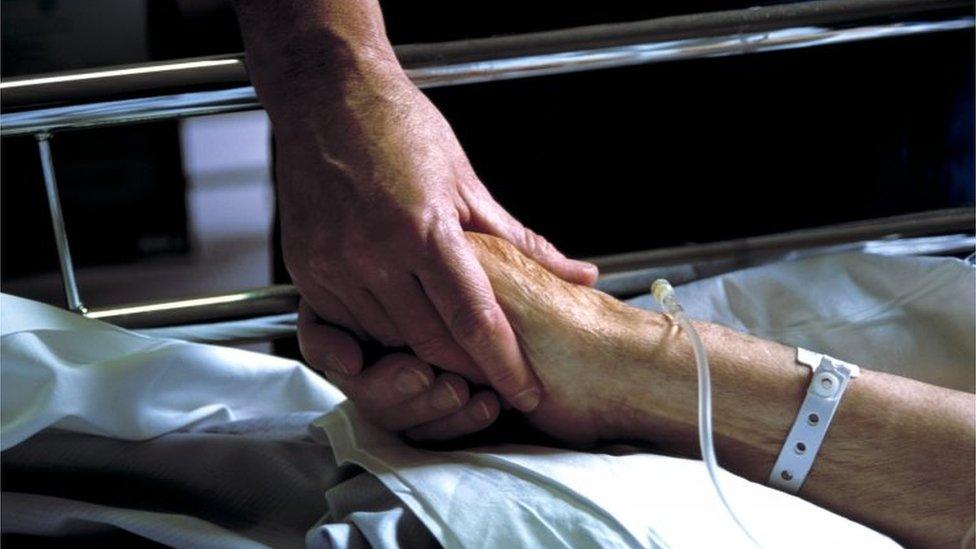Assisted dying: 'I was arrested for taking someone to Dignitas'
- Published
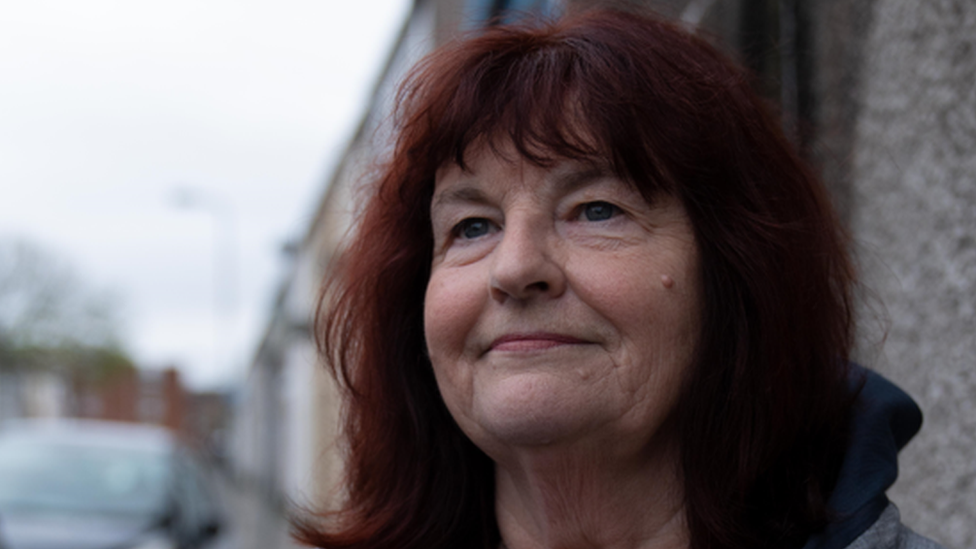
Sue Lawford discussed being an assisted death chaperone with her family before agreeing to go to Switzerland
A retired NHS worker spent 19 hours in custody and was investigated by police for six months for chaperoning a woman to her assisted death in Switzerland.
Sue Lawford went with Sharon Johnston, who was in a wheelchair after a fall left her paralysed, to Dignitas from her home in mid Wales.
The 70-year-old said police, who arrested her the day after returning from Switzerland, were "aggressive".
Dyfed-Powys Police said assisting a suicide was a criminal offence.
The force said a "thorough criminal investigation" was required to establish the facts but added that the case has been closed and no-one will face charges.
British law states anyone who is said to have encouraged or assisted the suicide or attempted suicide of another person can be jailed for up to 14 years.
Baroness Ilora Finlay, a former Royal Society of Medicine president and professor of palliative care, said the law must protect vulnerable people.
Ms Johnson, 60, who had no immediate family following the death of her parents and brother, went to Switzerland to die six months after the former pub landlady and betting shop worker told a BBC TV programme she planned to spend £14,000 to end her life.
Mrs Lawford, a retired GP surgery manager, did not know Sharon and only met her once before they travelled, but agreed to help her as a member of group My Death, My Decision, which supports changes to the UK law on assisted dying.
Retired NHS worker Sue Lawford spent 19 hours in custody
Mrs Lawford admitted "it wasn't the easiest decision" to help Ms Johnson, a tetraplegic, external, get to Dignitas but she said she "couldn't hand on heart come up with a good enough reason to say I wouldn't help".
Ms Johnston travelled from her home in Cardigan, Ceredigion, in a disabled taxi to London's Heathrow Airport on 14 February for the journey to Dignitas, picking up Ms Lawford in Cardiff on the way.
"Sharon was so rational, pragmatic and down to earth about the whole thing," said Mrs Lawford.
"She had been getting rid of stuff to the charity shops and things like that. There was this feeling that it was all quite imminent."
But not long after they set off, Ms Johnson received her first call from police. Mrs Lawford said she believed the carers who went to Sharon's home four times a day had reported her missing.
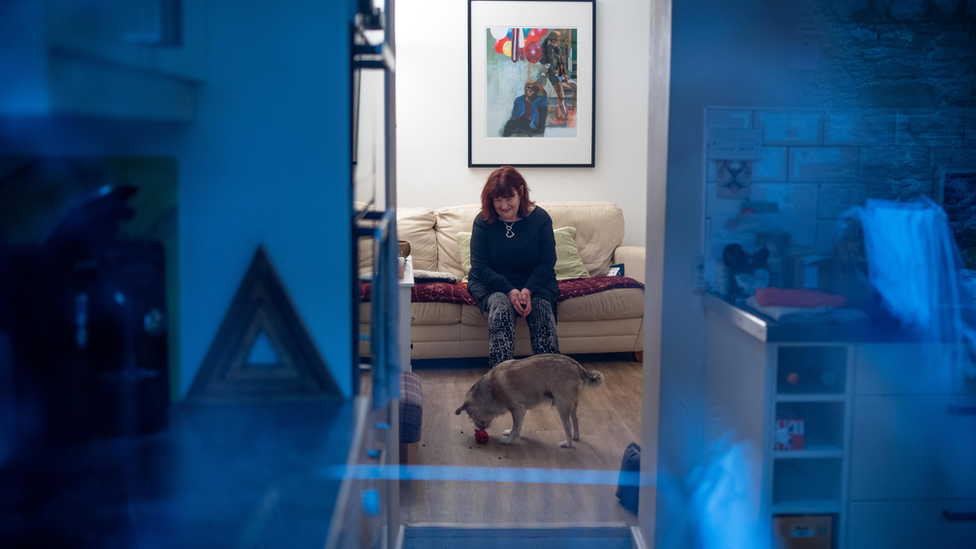
Sue Lawford says her dog went "berserk" when the police knocked on her door to arrest her at 05:30 GMT the day after returning from Switzerland
She said she thought Mrs Johnston received two calls from the police and one from social services on the journey to the airport, each time Mrs Johnston told the authorities that she was OK.
Ceredigion council has said it would not comment on individual cases but Mrs Lawford said those calls were "stressful".
"We didn't really talk about it in the taxi but I think we both felt that any minute we would see a blue light and we would be stopped on the motorway," she added.
"She was worried that she wouldn't be able to go through with it."

Sharon had previously said her carers were fantastic but her life was "not a fun way to live"
Once they arrived at Dignitas, Ms Johnston was assessed by a doctor and psychiatrist on whether she was able to make a rational decision about ending her life.
But Mrs Lawford said armed police then turned up.
"There was a knock on the door and looking out through the blinds, we could see it was the Swiss police," she added.
"The police here had asked the Swiss police to intervene. So more stress for Sharon. It was extremely upsetting and frightening.
"The police were very business-like but Swiss police are armed for a start, and it's not something we are used to seeing in this country.
"They were perfectly polite and asked lots of questions, both separately and together. I can only assume that they were reassured.
"Sharon was very calm and rational and the police eventually left and must have reported back to the police in the UK."
The following day, Ms Johnston ended her life at the clinic and Mrs Lawford returned home.
She was woken early the following morning at about 05:30 GMT by banging on her front door.
"The dog went absolutely berserk," Mrs Lawford recalled. "My husband and I nearly jumped out of our skins. He went down to answer the door and just called up and said 'Sue you better come down, it's the police'."
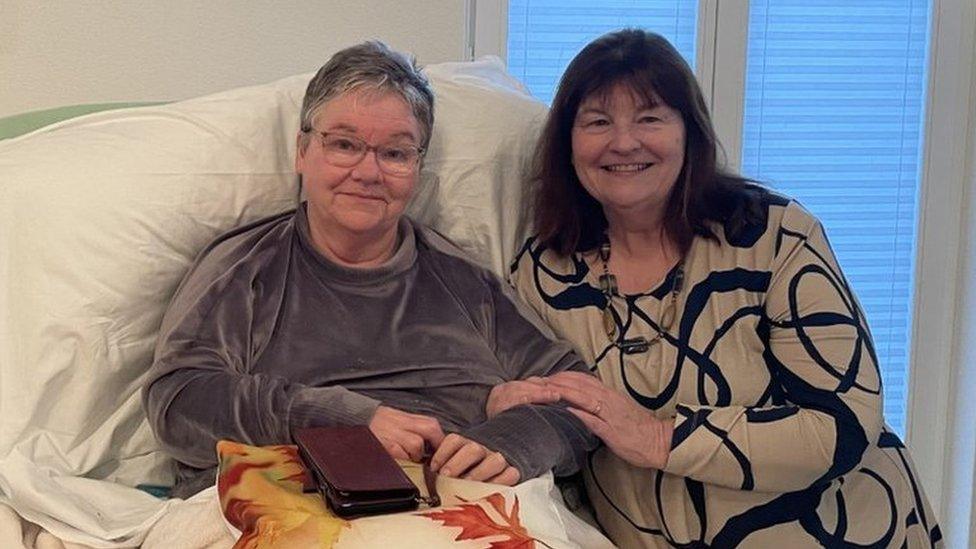
Sharon Johnston (left) and Sue Lawford together at Dignitas
As she stood in her pyjamas, Mrs Lawford was told she was being arrested and said an officer led her to a police van and made her sit in the cage at the back.
She said she was held for a total of 19 hours, 16 of them in a police cell, before being told that she was being released under investigation.
Dyfed-Powys Police said: "It is a criminal offence in the UK to encourage or assist in the suicide or attempted suicide of another person.
"The circumstances of such cases increase the risk of vulnerable people being exploited and others making financial gain," the force said a statement.
"A thorough criminal investigation is required to establish the facts of each case, requiring action to secure evidence that may be lost as time passes and prevent opportunities to dispose of relevant evidence.
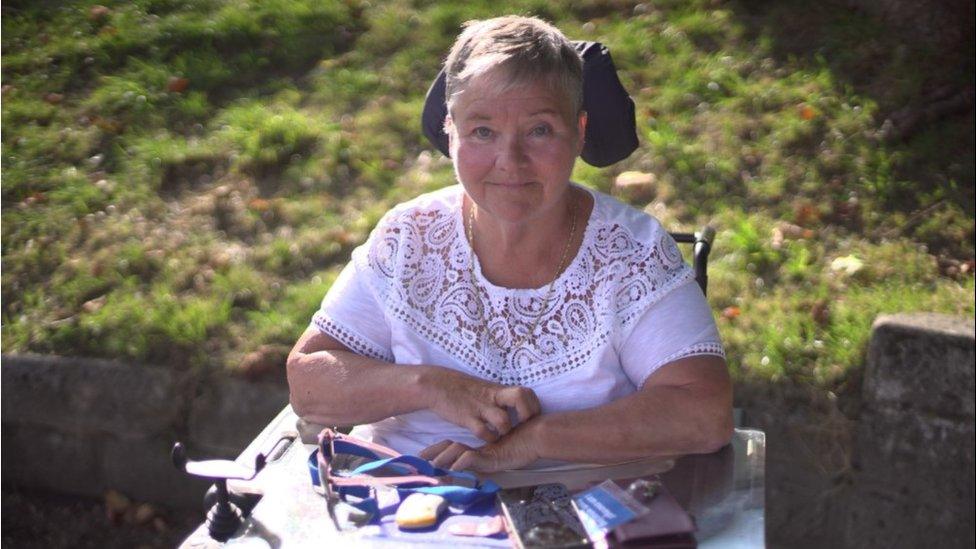
Sharon Johnston had told the BBC in 2021 that nothing would change her mind about wanting an assisted death
"Following such an investigation into the circumstances surrounding the death of Sharon Johnston the matter has been closed."
Officers have said the two people who were arrested as part of the investigation have been told they "face no further action".
The latest figures from prosecutors, external suggested just four cases of assisted suicide have been prosecuted in the UK, with the majority not leading to charges.
Mrs Lawford will speak at an event in Westminster Hall on Tuesday organised by My Death, My Decision, which wants the law changed so that people "of sound mind" who are "terminally ill or incurably suffering" can be allowed to end their own lives.
The topic of assisted dying has been debated in Parliament numerous times and the latest Assisted Dying Bill, external, which proposed allowing terminally ill adults to be helped to end their own life, was discussed in its second House of Lords reading last year but failed to make it to law.
Campaigners against the proposed change raised concerns it could leave some patients vulnerable to coercion.
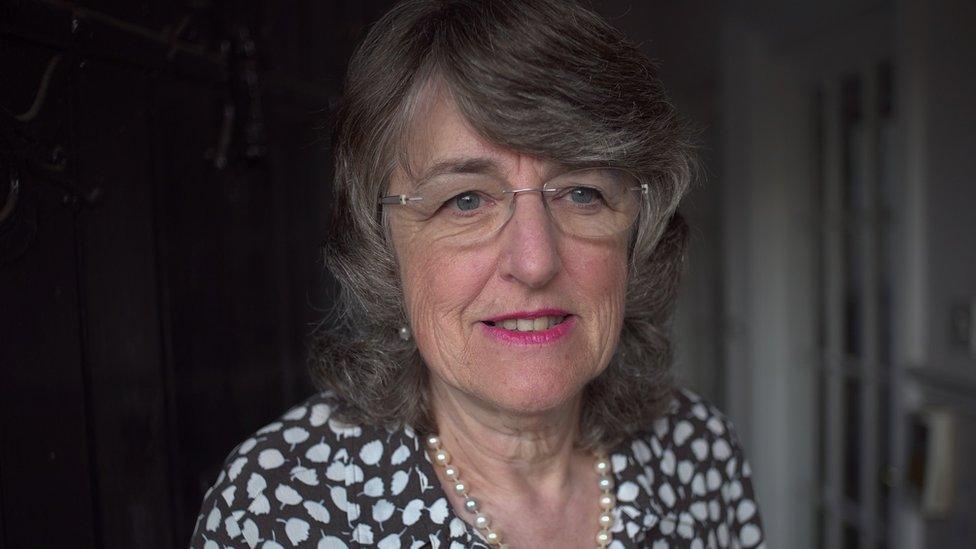
Baroness Finlay says there are concerns that assisted dying legislation does not offer enough protection for people who might be coerced
Cardiff cancer hospital consultant Baroness Finlay worried that once implemented legislation could expand to include the disabled, children, the mentally ill or those suffering trauma.
She said: "If you are considering legislation you must think who are you putting at risk."
She added she thought it was "dangerous" to put doctors in a position where they could end lives and added they should be working to improve, not shorten them.
"The role of the law has to be to protect everyone who is vulnerable and it has to look to protect the most vulnerable from being pressurised into things that they should somehow end their lives," she said.
"That is the law at the moment and the director of public prosecutions has very clear guidance as to which cases should be pursued and which shouldn't.
"Sadly there are always people who, at a time of something awful happening, feel complete despair.
"But we know that with appropriate support and help, they come out the other side and often can live very well and go on to be glad that they are still alive. It is too dangerous to licence a doctor to provide lethal drugs to their patients."
Assisted dying has been decriminalised in several European countries, including Spain, Belgium and the Netherlands while a bill to legalise assisted dying has now been introduced in Scotland, which could bring about changes next year.
The British Medical Association has now moved to a position of neutrality, external on assisted dying.
MPs last voted on changes to the right to die in England and Wales in 2015 and the UK government said any change to the law "in an area of such sensitivity and importance" is for individual MPs to consider rather than government.
"Our sympathies remain with the families and loved ones affected by these deeply upsetting cases," the Ministry of Justice added.
Mrs Lawford said she understands the police were doing their job when they questioned her but feels the law should change - and hopes she is never asked to accompany anyone on a trip like this again.
"I have not actually talked about it to many people but when I do I don't sleep very well for a couple of nights." she said. "It is a massive thing."
If you have been affected by any of the issues in this story, the BBC Action Line has links to organisations which can offer support and advice
- Published21 February 2022
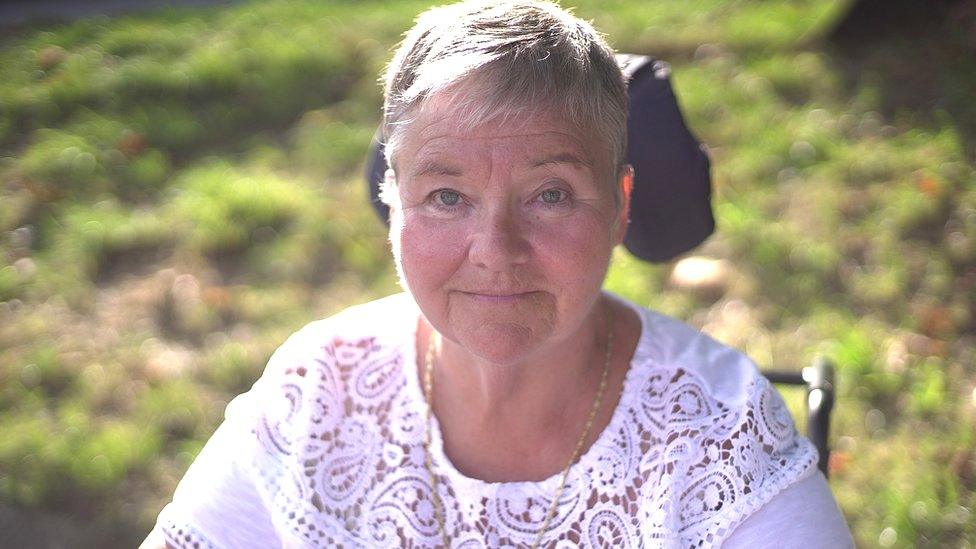
- Published1 January 2022
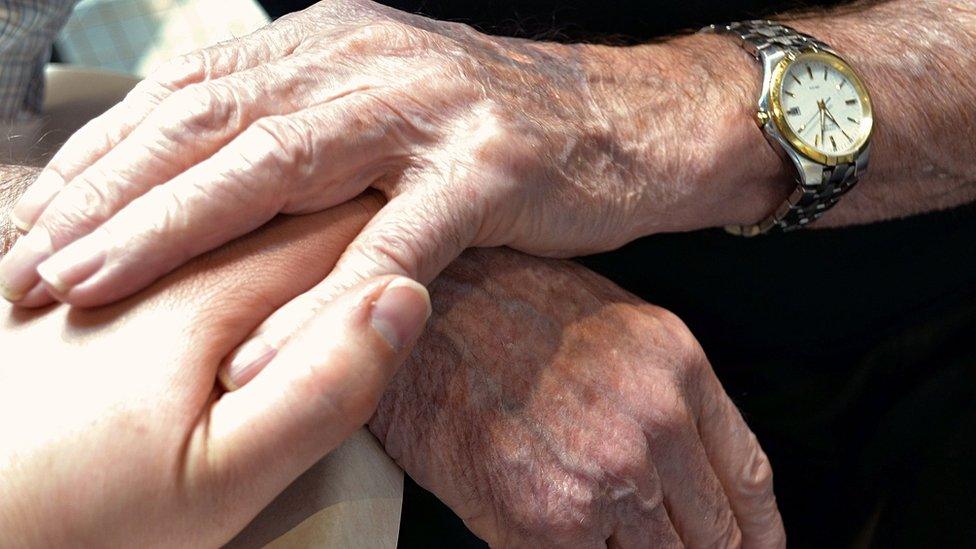
- Published25 November 2021
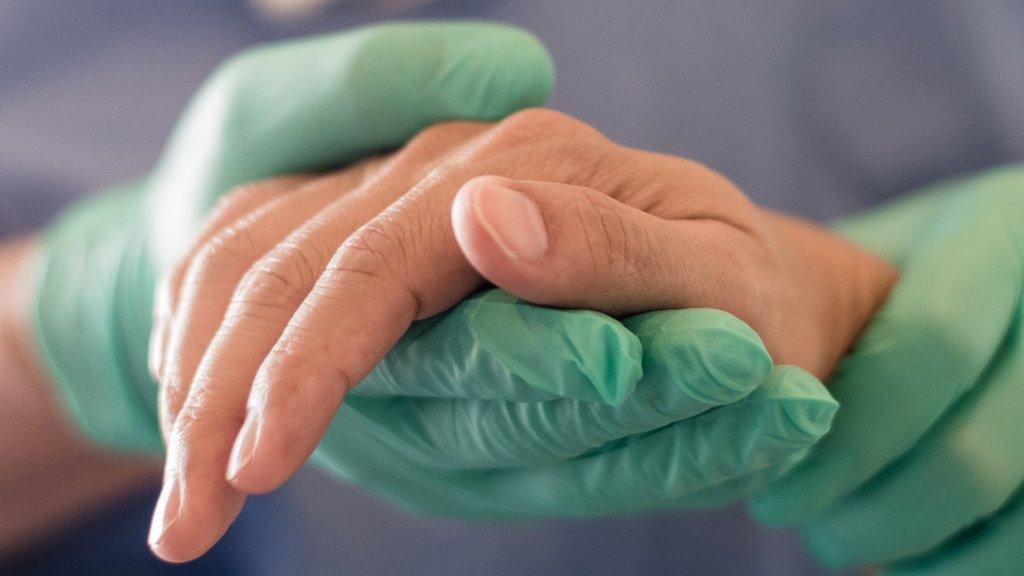
- Published20 October 2021

- Published5 July 2021
